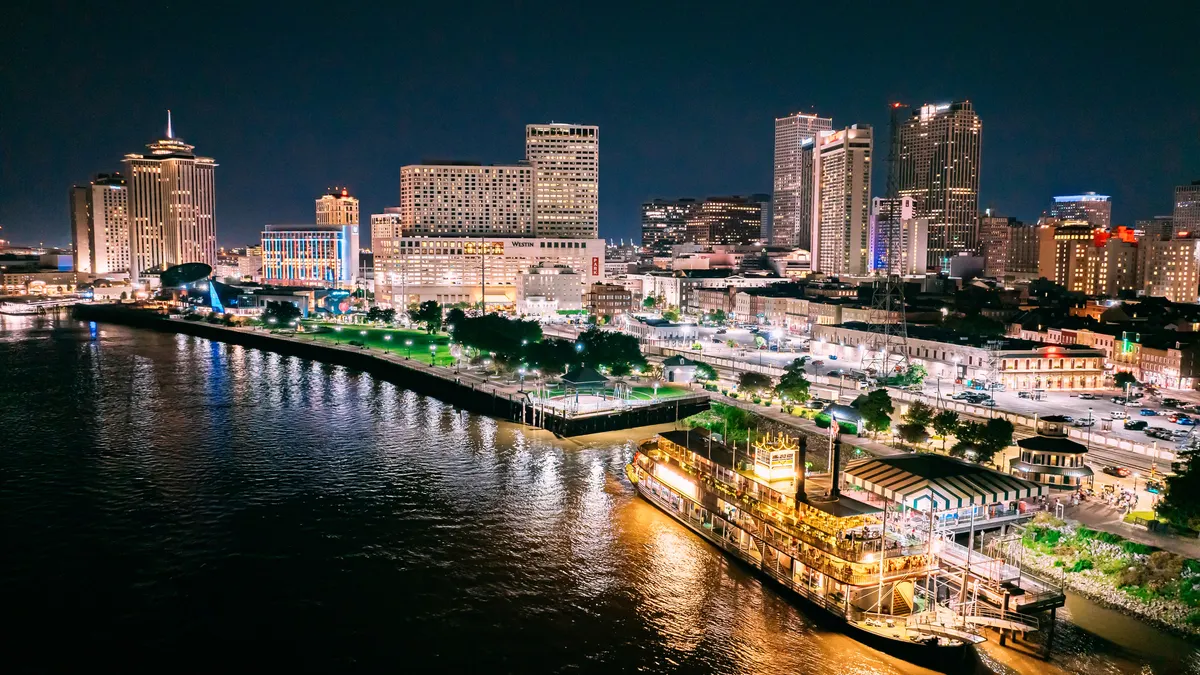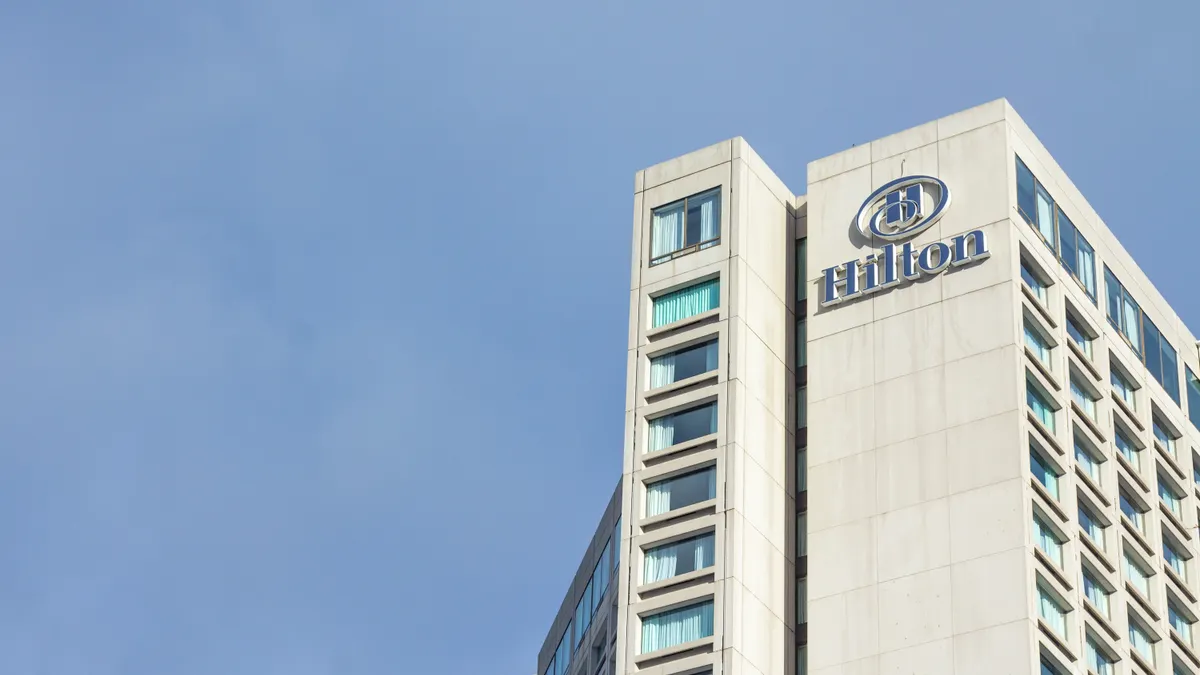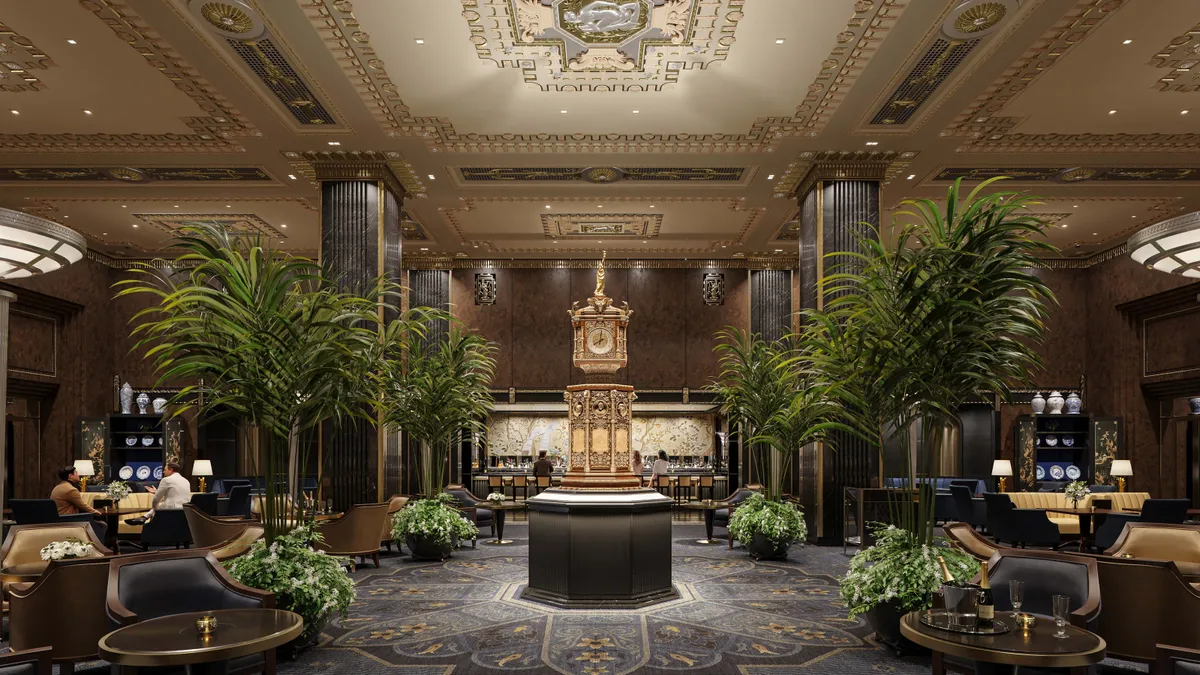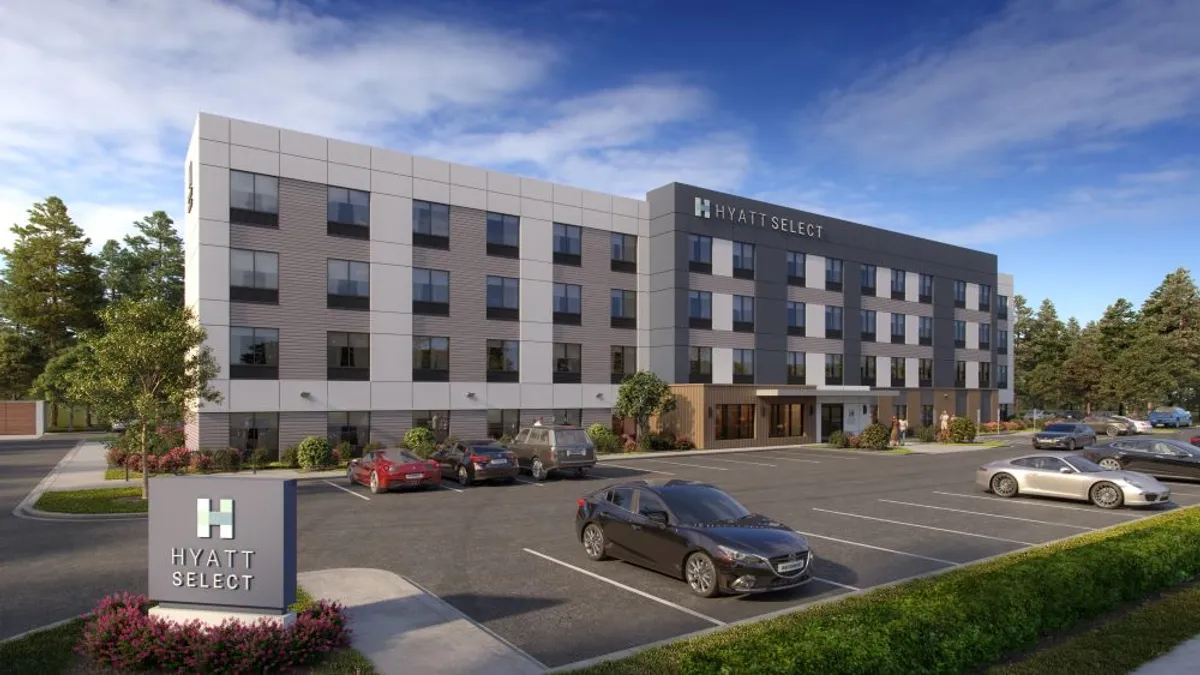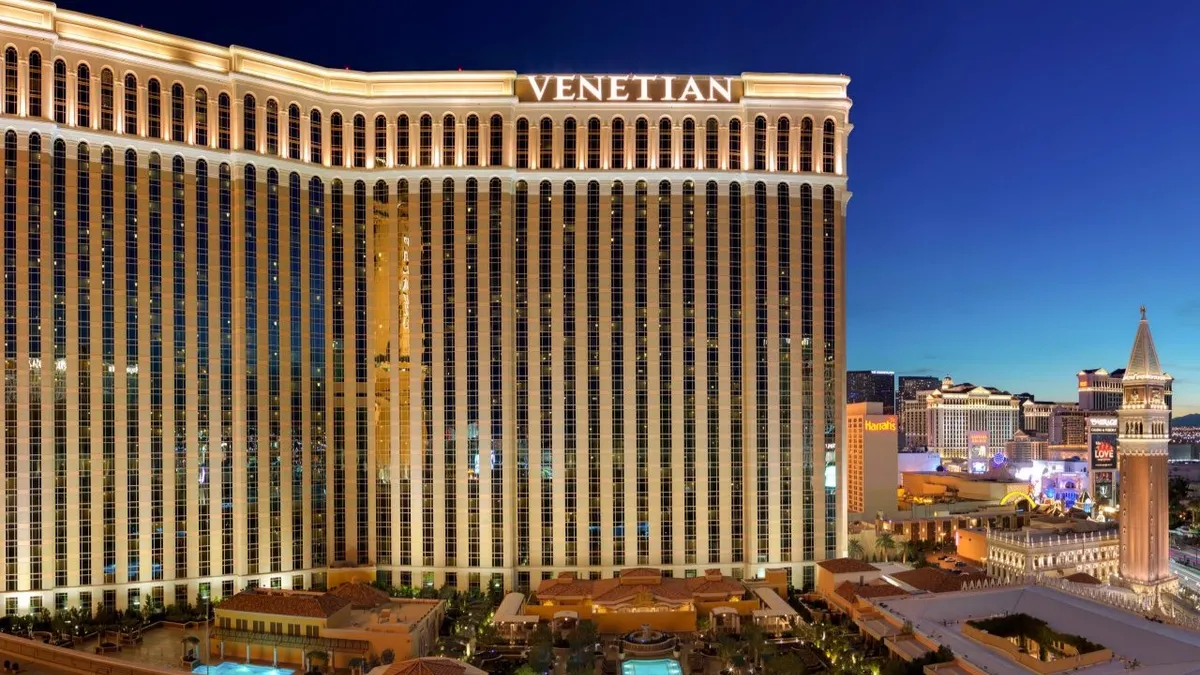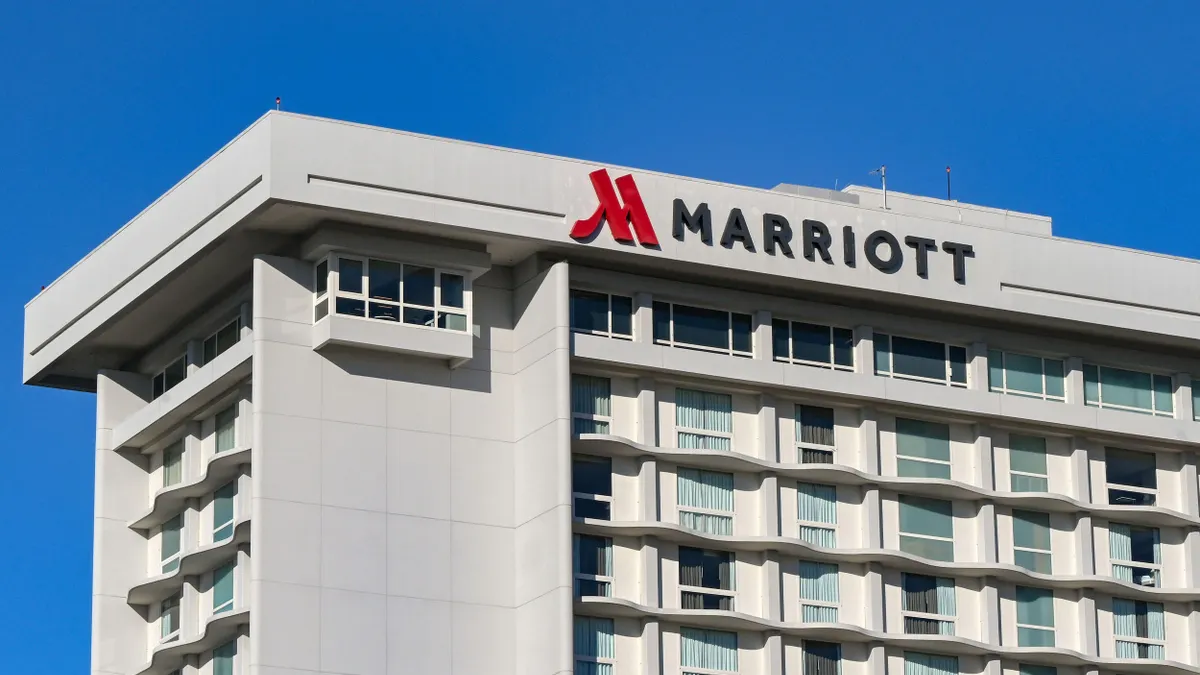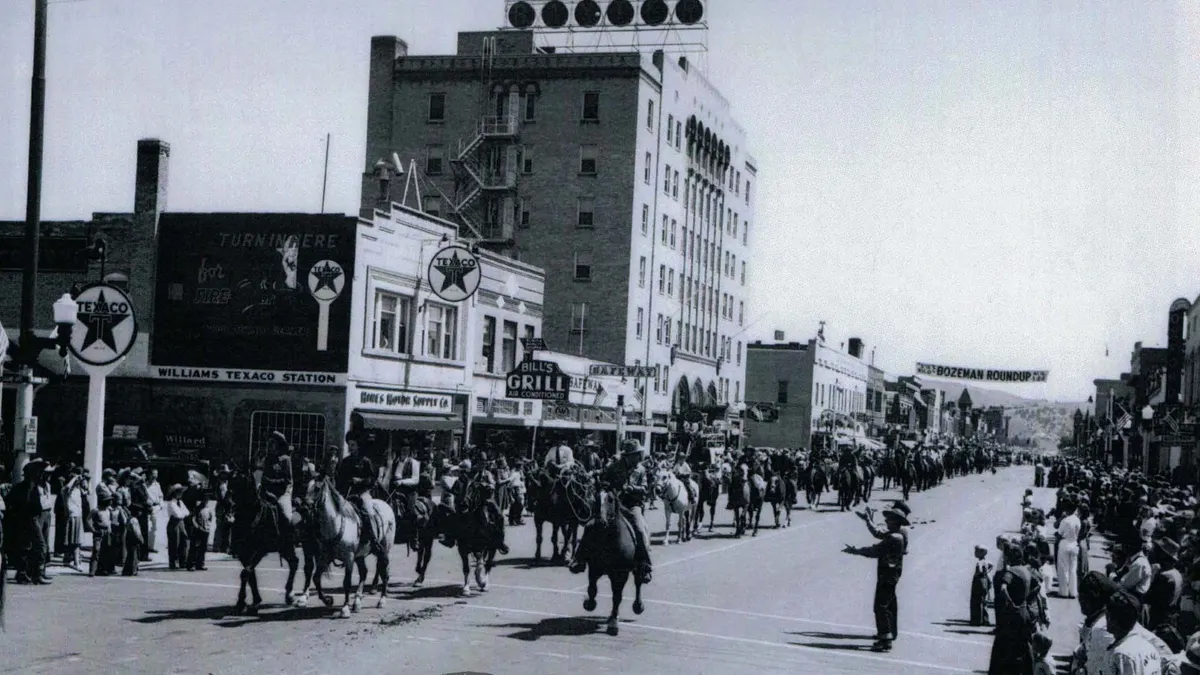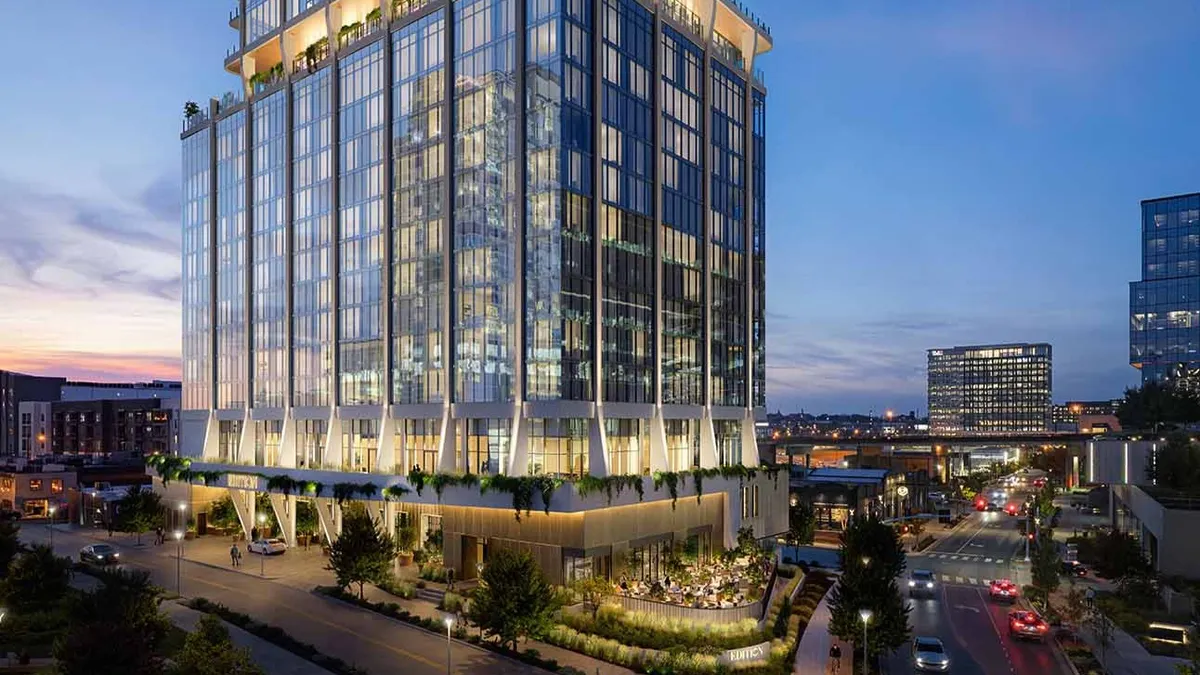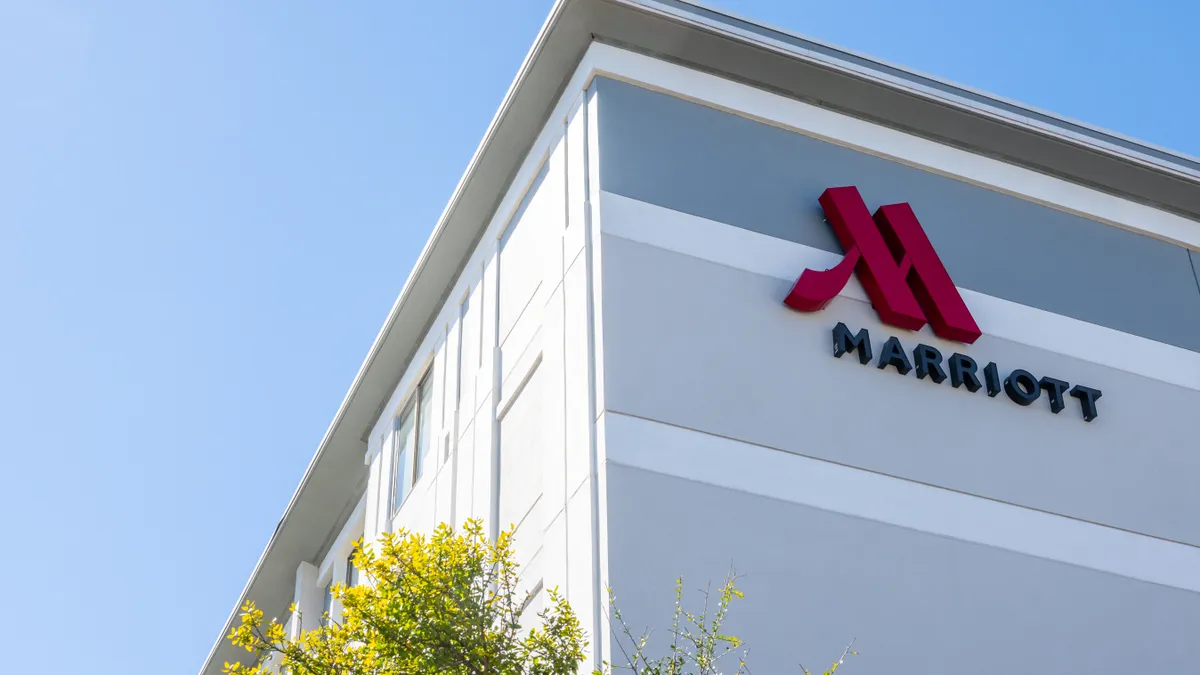It’s been a busy year for New Orleans.
“We had Taylor Swift in October, we had the Super Bowl in February and we had Mardi Gras right after,” Walt Leger, president and CEO of destination marketing organization New Orleans & Company, told Hotel Dive. “What other place could have these three iconic events in such a short period of time and ultimately deliver at such a high level?”
Major events are just one demand driver for the Louisiana city, which boasts strong convention and leisure travel fundamentals, leading hotel companies and investors to take note.
In January, buzzy luxury brand Nobu opened a hotel at Caesars Entertainment’s $435 million Harrah’s New Orleans redevelopment. The following month, Omni Hotels & Resorts got the green light from the city’s convention authority to develop a $500 million, 1,000-room headquarters hotel across the street from Ernest N. Morial Convention Center.
Then, in March, global real estate investment and development firm Gencom acquired the 528-key Ritz-Carlton, New Orleans and an adjacent 230-key Courtyard by Marriott hotel.
Hotel Dive sat down with Leger and other New Orleans hospitality pros to discuss what makes the city’s hotel scene so appealing to travelers, investors and developers alike.
A ‘bounce-back’ market
Two decades ago, things were looking different in New Orleans. In 2006, the city posted an all-time low number of visitors, 3.7 million, in the aftermath of Hurricane Katrina, according to New Orleans & Company.
In 2019, however, the city posted a record 19 million visitors — a number New Orleans achieved again in 2024 following its post-pandemic recovery, according to a report from the organization.
“I call it a ‘bounce-back market,’” said Alessandro Colantonio, chief investment officer at Gencom. “Coming out of Katrina, people seemed to rally around the city, and as soon as things had opened up again, tourism was back. … We saw it after the pandemic as well.”
Though the hurricane caused major damage to New Orleans properties, many of the affected hotels invested in renovations — and came back better, per New Orleans & Company. That includes the 1,200-room Hyatt Regency, which reopened in 2011 after a $275 million revamp, and the Ritz-Carlton, New Orleans, which reopened in 2006 after $100 million in renovations.
“Developers are not looking to just have a hotel. They're looking to have a place where people can really connect and share, and be immersed in the culture.”

Walt Leger
president and CEO of New Orleans & Company
Colantonio said Gencom’s purchase of the Ritz-Carlton hotel and its neighboring Courtyard by Marriott was a long time in the making.
“These assets, in particular, we’ve targeted for many, many years,” he said, touting New Orleans’ “year-round demand.”
“You've got universities, medical, sports, entertainment, jazz, all the annual events, and then every once in a while you get thrown into the Super Bowl cycle, or you get a Taylor Swift concert,” he said. “In addition to that, you also have a top-tier convention market. A lot of [U.S.] leisure markets don't have that.”
During the weekend of Taylor Swift’s New Orleans tour stop last year, city hotels’ RevPAR grew 226% year on year, with room rates also doubling, according to STR. Meanwhile, this year’s Super Bowl gave hotels a RevPAR boost of 216%, STR also reported.
Leisure goes high-end, boutique
New Orleans’ luxury market, meanwhile, “has tended to outperform the market average,” Colantonio noted, “driven by a resilient, higher-spending leisure demand customer.”
Higher-spending leisure travelers are also driving the city’s boutique and independent hotel boom, hotel pros said.
“Over the last 12 months here in New Orleans, there hasn't been much growth in the overall number of hotels except in the independent and soft-branded market for boutique hotels,” said Ceptember Evans, area general manager for boutique properties The Garden District Hotel and The Blackbird Hotel, which opened in June 2025 and late 2024, respectively.
“New Orleans’ market is completely different from what you're used to seeing in places like Dallas or Austin, because it’s a lot more independent hotels — a lot more small, unique boutiques,” Evans added.
According to Matt Greene, executive vice president of Dreamscape Hospitality, which operates the Garden District and Blackbird hotels, New Orleans’ leisure travelers are driving that boutique push. “People will pay a premium for an experience,” Greene said, pointing to the market’s RevPAR growth, which has been driven by a 9.2% increase in room rates, he noted.
Given the city’s historic nature, design-oriented hotels have also made for “unique restorations of properties,” Leger said. Nationwide, more hospitality brands and hotel developers are leaning on adaptive reuse for its cost-savings, sustainability and design appeal, hospitality pros told Hotel Dive earlier this year.
“I think [the rise in design-oriented hotels] just reflects an evolution of what travelers are looking for, which is something that is a little more curated and tied to the community in a way that is authentic and real,” Leger said. “[Hotel] developers are not looking to just have a hotel. They're looking to have a place where people can really connect and share, and be immersed in the culture.”
Culturally immersive experiences are a top hospitality industry trend for 2025, according to hoteliers.
Convention powerhouse
On top of attracting a thriving leisure scene, New Orleans also boasts strong convention appeal.
Colantonio said the convention market “was really a big driver of why we [Gencom] were ready to make a big splash in the market.” When the team was looking at 2025, for instance, the convention pace was already at 93% of the average of 2017 to 2019, he said.
“2026 was already at 98% of that average, and when you get further to 2028, 2029 you're north of 100%,” he noted. “So we kind of look at all that and say, you know, there's a really nice trend here.”
According to Colantonio, beyond Gencom’s two-hotel purchase, “We're absolutely looking at other opportunities in New Orleans, [and we’re] big believers in the long-term growth of the market.”
Kurt Alexander, president of Omni Hotels & Resorts, told Hotel Dive that the company’s forthcoming convention hotel in New Orleans will fuel future growth, enhancing the city’s “ability to attract marquee conventions and events while also generating meaningful economic growth and permanent career opportunities for the community.”
That growth could also positively benefit hotels that don’t cater primarily to convention travelers, Evans said, as travelers “come to the convention center for a couple days and then stay through the weekend.”
“People are interested in blending business and pleasure,” she said.


